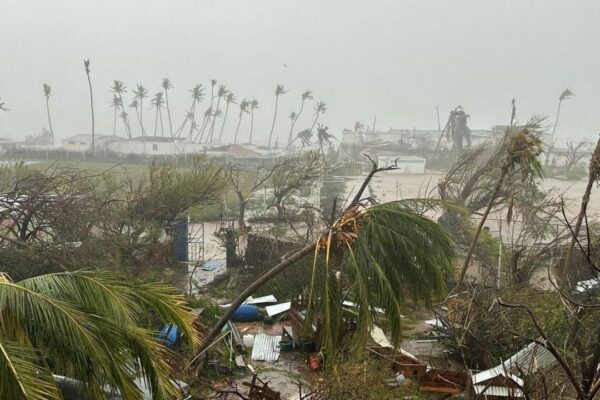Climate Change is contributing to Child Malnourishment, Says UN Research
Climate change is likely to change the planet’s reality as we know it. The phenomenon is going to affect all aspects of human life, especially food availability. According to recent research, climate change is contributing to child malnourishment and is likely to worsen it in the future with a decline in global diet and food security. Scientists have projected that the decline in essential nutrients in an increasing number of regions will create a food deficit to properly feed 10 billion people by 2050.
Scientists have found that climate change is already harming children’s diets in most parts of the world. It is widely anticipated that changing climatic patterns will negatively affect both food security and diet diversity. However, little was known about how diet diversity is impacted by climate change outcomes, like warmer temperatures and increased precipitation over particular geographical areas.

Image: The Independent
Although childhood malnutrition has decreased globally over the past few years, undernourishment has increased since 2015, partially owing to warming temperatures and extreme weather conditions. The United Nations revealed that 144 million children under five were affected by stunted growth in 2019 as a result of chronic malnutrition, with an additional 47 million suffering from wasting caused by low nutrient intake.
Published in the journal Environmental Research Letters, the study was led by researchers at the University of Vermont. The study analyzed dietary data of over 107,000 children under the age of five, gathered from 19 countries in Asia, Africa, and South America; coupled with 30 years of precipitation and temperature data to explore the links of climate to child diet diversity while controlling for other agro-ecological, geographic, and socioeconomic factors.
Also Read: Hunger and Starvation Affecting Half the Human Race
The study particularly focused on diet diversity – a UN metric that measures diet variety and micronutrient consumption such as iron, folic acid, and zinc, as well as vitamins A and D that are critical for proper physical and mental growth in children.
The study discovered that higher temperatures were linked with a substantial decline in the quality of diet in five of the six regions of the study. It noted that global warming and erratic weather patterns could have profound impacts on child diet diversity; as rising temperatures can directly affect the crop yields and reduce livestock productivity, both severely impacting child nutrient consumption.
These forthcoming events could affect the mental and physical growth of children all over the globe. Climate change contributing to child malnourishment raises dozens of questions, including what could be done to prevent the exacerbation of the situation in the short- and long-term. The study urges the global communities to take strong actions against changing climatic patterns to provide the children with proper nourishment and help in their growth.


